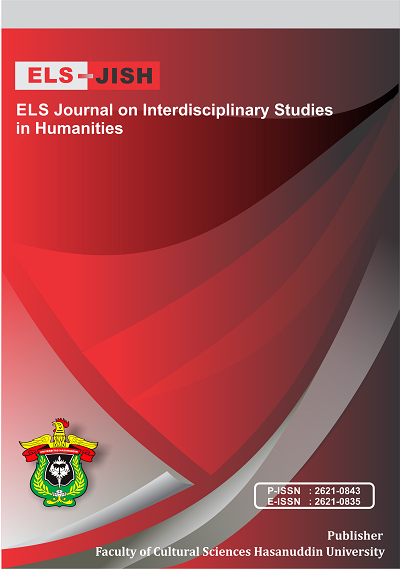Self-confidence level of users of dating applications in Tridinanti University Students
DOI:
https://doi.org/10.34050/elsjish.v7i3.36646Keywords:
Self-confidence, Dating apps, College studentsAbstract
The study aimed to examine the use of online dating apps among Tridinanti University students and its relationship with confidence levels. Based on an initial survey conducted in January 2024 with 322 respondents, it was found that students of Tridinanti University use online dating apps as a necessity in finding a partner. The majority of users have been using the app for more than a year, with an average usage of about two hours per day. The survey results show that college students who use online dating apps tend to have lower levels of self-confidence, being more comfortable dating through apps than in person. Ninety-two students were embarrassed to initiate a face-to-face encounter, 76 students lacked confidence in their physical appearance, and 29 students did not have time to seek a face-to-face partner. In addition to surveys, the study also involved observation and interviews to delve into this phenomenon. The research uses a combination method (mix method) with a quantitative and qualitative approach, adopting a sequential explanatory model. The data was collected through a Likert scale and tested for validity and reliability using SPSS version 20.0. The results of this study are expected to provide a deeper understanding of the impact of using online dating apps on student self-esteem.Downloads
References
Annisa, D. (2020). The Impact of Confidence on Direct Communication. Journal of Social Interaction, 45(2), 156-172.
Anthony, W. (2010). Self-confidence and Personal Development. In Ghufron, M. N., & Risnawita, R. (Eds.), Psychological Foundations of Personality Development. Jakarta: PT Gramedia.
Azwar, S. (2012). Sikap Manusia: Teori dan Pengukurannya (2nd ed.). Pustaka Pelajar.
Azwar, S. (2015). Reliabilitas dan Validitas (4th ed.). Pustaka Pelajar.
Baumeister, R. F., Rudich, E. A., et al. (2007). Self-Esteem and Rejection Sensitivity: The Impact of Social Feedback. Journal of Personality and Social Psychology, 92(3), 468-481.
Dweck, C. S. (2003). Mindset: The New Psychology of Success. New York: Random House.
Erwansyah, R., et al. (2023). The Impact of Age Maturity on Confidence Levels in Social Interactions. Journal of Personality and Social Development, 8(2), 123-139.
Ghufron, M. N., & Risnawita, R. (2010). The Psychology of Self-confidence and Its Application in Social Life. Jakarta: PT Gramedia.
Hakim, A. (2023). Gender and Self-Confidence: An Analysis of Internal Factors. In Trimayati, S., et al. (Eds.), Psychological Aspects in Social Interactions (pp. 45-61). Academic Press.
Hurlock, E. B. (2017). Developmental Psychology: A Lifespan Approach. New Delhi: McGraw Hill.
Julianti, N., & Andhika, P. (2021). Online Dating and Expanding Social Networks. Journal of Digital Society, 34(1), 23-34.
Junaid, S., Andini, C., Atun Atsyania, N., & Nurul Rahmawati, A. (2024). Exploring Rani Mehra’S Culture Shock In Queen (2014) Movie Through the Lens of Sverre Lysgaard’S U-Curve Theory. ELS Journal on Interdisciplinary Studies in Humanities, 7(3), 475-489. https://doi.org/10.34050/elsjish.v7i3.37347
Kurniasari, T., & Utami, D. (2021). The Basic Needs of Adults in Relationships. Indonesian Journal of Psychology, 5(4), 112-125.
Kumara, N. (2010). Building Self-confidence for Social Success. In Ghufron, M. N., & Risnawita, R. (Eds.), Psychological Foundations of Personality Development. Jakarta: PT Gramedia.
Miftajanna, A., & Irwansyah, P. (2022). Low Self-esteem in Online Dating Application Users. Journal of Behavioral Studies, 11(3), 56-73.
Murasmutia, D., et al. (2015). The Role of Confidence in Achieving Success in Social Interactions. Journal of Psychological Development, 14(2), 87-101.
Neff, K. D., & Vonk, R. (2009). The Dangers of Overly Harsh Self-Criticism. Journal of Personality and Social Psychology, 96(3), 645-660.
Pratiwi, L. (2018). Educational Attainment and Its Influence on Self-Confidence Levels Among University Students. Journal of Educational Psychology, 6(1), 67-82.
Pribadi, A. Z., & Roestamadji, I. (2012). Youth Confidence and Its Impact on Social Interactions. Journal of Indonesian Sociology, 8(2), 101-115.
Rahman, F., Abbas, A., Hasyim, M., Rahman, F., Abbas, A., & Hasyim, M. (2019). Facebook group as media of learning writing in ESP context: A case study at Hasanuddin University. Asian EFL Journal Research Articles, 26(6.1), 153-167.
Rahman, F., & Amir, P. (2019). Trends in Reading Literary Fiction in Print and Cyber Media by Undergraduate Students of Hasanuddin University. International Journal of Education and Practice, 7(2), 66-77.
Rakuten Insight. (2022). Survey on Online Dating Application Users in 2022. Goodstats.
Robbins, S. P., & Judge, T. A. (2008). Organizational Behavior. 13th Edition. Upper Saddle River: Prentice Hall.
Rofiqoh, N. (2022). The Impact of Social Support from Partners on University Students. Journal of Educational Psychology, 13(2), 43-56.
Rudich, E., Baumeister, R. F., et al. (2007). Rejection and Its Impact on Self-Confidence: An Analysis of Interpersonal Relationships. Journal of Social Psychology, 143(4), 530-544.
Salsabilla, M., & Rahardjo, T. (2024). Gender and Self-Confidence: A Comparative Study. Journal of Behavioral Studies, 12(1), 90-102.
Sternberg, R. J. (2018). The Triangular Theory of Love. In Suyono, I. (Ed.), Psychology of Love and Intimacy. Jakarta: PT Gramedia.
Suma, M., Rahman, F., Dalyan, M., Andini, C., & Wajadi, A. M. F. (2024). Cultural Aspects of Character Education found in Comic" Pelayaran Ke Dusung": An Ecranization through the Application of Augmented Reality. Journal of Ecohumanism, 3(4), 739-753.
Syam, F., & Amri, A. (2017). Confidence and Social Life. Indonesian Journal of Social Psychology, 9(1), 34-45.
Trimayati, S., et al. (2023). Gender as a Factor Affecting Self-Confidence in Different Contexts. Journal of Psychology and Social Dynamics, 10(3), 98-115.
Willis, A. (2010). Self-confidence and Problem-solving in Social Contexts. In Ghufron, M. N., & Risnawita, R. (Eds.), Psychological Foundations of Personality Development. Jakarta: PT Gramedia.
Yaumi, M. T. A. H., Rahman, F., & Sahib, H. (2023). Exploring WhatsApp as Teaching and Learning Activities during Covid-19/New Normal era: A Semiotic Technology Analysis. International Journal of Current Science Research and Review, 6(12), 7627-7634.
Zuckerman, M., & Tsai, F. (2005). Repeated Failures and Their Effect on Confidence. Journal of Applied Social Psychology, 35(1), 117-134.
Downloads
Published
How to Cite
Issue
Section
License
Copyright (c) 2024 Risca Firlianty, Nuzsep Almigo

This work is licensed under a Creative Commons Attribution-ShareAlike 4.0 International License.

















